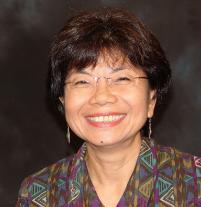Strategies needed to avoid social exclusion of young Muslim people
Published on 12 September, 2007
Comprehensive and long-term strategies are required to reduce the potential of social exclusion among some young Muslim people in Australia.
That is according to researchers who have just completed a study of identity and self-perception of young Muslim people.

Dr Sansnee Jirojwong
The research was carried out by a team including Dr Sansnee Jirojwong, Tabassum Ferdous, Dawn Hay, Dr Daniel Teghe and Dr Roberta Harreveld from Central Queensland University and Dr Mohamad Abdalla from the Griffith Islamic Unit at Griffith University.
Young people surveyed reported a lack of understanding by some about the role of prayer, dress and food in being a Muslim.
"Almost half were verbally or physically abused by some people at public places because they were Muslims," Dr Jirojwong said. "Many adults and children commented on negative impacts of the media on Muslims."
Dr Jirojwong said many young people also experienced discrimination, stereotyping and marginalisation at schools, playgrounds and work places.
"The young people were proud of who they were," she said. "They called for respect and understanding from wider communities including their school friends and neighbours.
"Many strategies can be implemented by Muslim individuals, Islamic organisations and other relevant national, State and local organisations. Young Muslim people are Australians who are human resources of the country."
The researchers surveyed 117 young Muslim people, aged 9-19 years in three Queensland locations: Brisbane, Rockhampton and Mackay. Social, cultural, political and structural environments which influence the identity and self-perception of young people (and those described by them) were investigated. They provided information through a group discussion and completing a short questionnaire. Almost half of the young people (48%) surveyed were born in Australia. They were fluent in spoken and written English. The identity of the young people was quite complex. They had more than one identity: religious, Australian and ethnic identities. Many were bilingual and used English at schools or at work. Almost all (93%) were proud to be a Muslim but only half (58%) said that they were proud to be an Australian.

